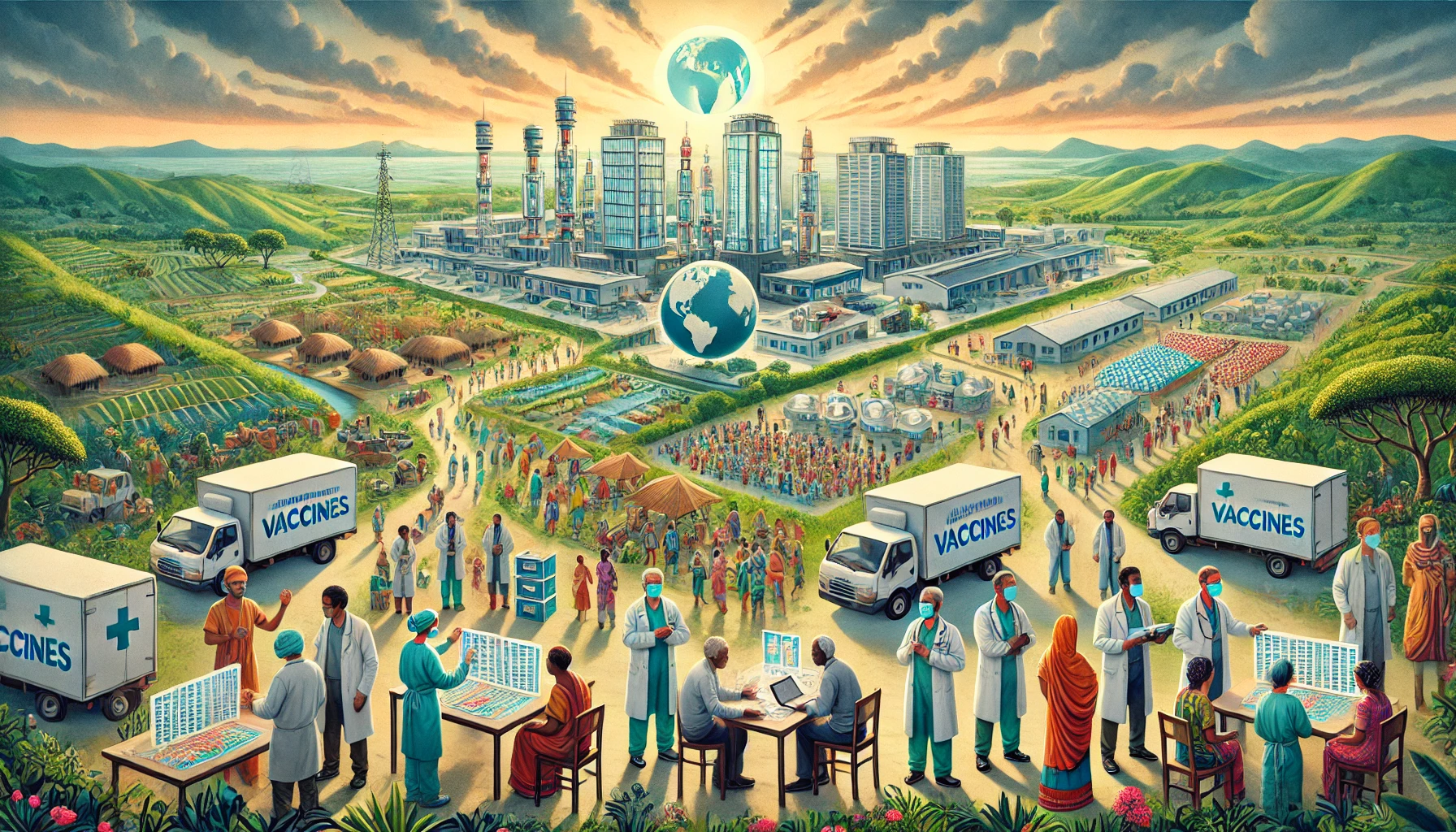Strengthening Health Systems and Equity in the Fight Against the Mpox Epidemic
The UNDP and USC highlight the need for science-based, equitable, and human rights-focused responses to mpox, addressing global disparities in vaccine access, combating stigma, and strengthening health systems. They stress inclusive governance and sustained investments in pandemic preparedness to ensure resilience and equity in future crises.

The UN Development Programme (UNDP) and the University of Southern California (USC) Institute on Inequalities in Global Health emphasize that addressing mpox (monkeypox) requires science-based, equitable, and human rights-centered strategies. In 2024, the World Health Organization (WHO) declared mpox a Public Health Emergency of International Concern (PHEIC), while the Africa CDC labeled it a Public Health Emergency of Continental Security (PHECS), reflecting the outbreak's gravity. Past crises like HIV, Ebola, and COVID-19 have shown that equitable access to healthcare and community engagement are critical for successful public health responses. The brief highlights that focusing on affected populations and fostering international collaboration can minimize mortality and morbidity while expediting economic recovery.
Inequities in Vaccine Access and Distribution
The mpox outbreak has laid bare significant disparities in healthcare resource distribution. While 10 million vaccine doses were pledged, only 5.6 million had been delivered by October 2024, with initial shipments reaching the Democratic Republic of Congo. Delays stem from infrastructure challenges and dependence on high-income countries that control vaccine production and pricing. This mirrors the inequities seen during COVID-19, where vaccine hoarding by wealthier nations left vulnerable populations unprotected. The report advocates for local production of diagnostics, treatments, and vaccines to bridge these gaps and challenges intellectual property barriers, such as patents, that hinder equitable access. Ensuring readiness, including adequate storage and distribution infrastructure, is essential to address such delays in future health emergencies.
Complex Transmission Dynamics Demand Tailored Responses
Understanding mpox transmission is crucial for containing the outbreak. While the 2022 outbreak was predominantly linked to sexual transmission among men who have sex with men, the 2024 resurgence revealed broader transmission pathways, including household contact. Children and vulnerable groups such as healthcare workers, truck drivers, prisoners, and internally displaced people have been significantly affected. People living with untreated HIV face a heightened risk of severe complications. African scientists have contributed valuable insights into the virus's genetic diversity and transmission patterns, which have been critical for shaping effective responses. However, these efforts must be matched with robust surveillance systems and equitable healthcare access to protect at-risk populations.
Combating Stigma and Misinformation
Stigma and misinformation remain formidable barriers to combating mpox effectively. Marginalized groups, including LGBTQ+ communities, have faced discrimination that deters them from seeking testing, treatment, or vaccination. The outbreak's impact on children has further highlighted the need for inclusive public health strategies. In response, the WHO and Africa CDC have developed communication campaigns to dispel myths and promote accurate, culturally sensitive messaging. These initiatives emphasize community engagement and involve representatives from affected populations to ensure that information is accessible and actionable. Building trust through transparency and inclusivity is key to overcoming stigma and encouraging participation in public health measures.
Strengthening Health Systems for Future Resilience
The broader implications of the mpox crisis underscore the urgent need to fortify health systems worldwide. The 2021 Global Health Security Index revealed that most countries, regardless of income, remain dangerously unprepared for future pandemics. Political instability, underfunded health infrastructure, and neglect of vulnerable populations exacerbate these challenges. The researchers advocate for sustained investments in universal health coverage, emphasizing that equitable access to quality healthcare services is essential for building resilient health systems. Addressing structural inequalities, such as poverty and legal barriers to healthcare, is critical to mitigating the long-term impacts of epidemics and ensuring preparedness for future crises.
A Call for Global Solidarity and Inclusive Governance
The mpox outbreak has spurred discussions about a global framework for pandemic prevention and response. An international instrument could establish principles for equitable healthcare access, promote open science, and foster international cooperation. The brief calls for dismantling systemic barriers such as racism, sexism, and xenophobia while prioritizing solidarity in public health governance. Investments in disease surveillance, research collaboration, and local production capabilities are crucial for preventing future pandemics and minimizing their impact. The authors emphasize that communities most affected by mpox must be central to decision-making processes. Inclusive policies that consider the lived experiences of vulnerable populations ensure effective and non-stigmatizing responses.
The document concludes with an urgent call to action. Governments must place human rights and equity at the center of their public health responses. This includes ensuring healthcare resources are available, accessible, acceptable, and of high quality for all populations, particularly marginalized groups. Health workers must be supported with accurate information, personal protective equipment, and adequate resources. Structural inequalities, including poverty and legal barriers, must be addressed to reduce the ripple effects of pandemics. By adopting these measures, the global community can transform public health emergencies into opportunities for building stronger, more equitable health systems. The lessons from mpox underline the need for constant investment in preparedness, collaboration, and inclusivity to safeguard the well-being of all individuals.
- READ MORE ON:
- UN Development Programme
- COVID-19
- monkeypox
- mpox
- healthcare
- CDC
- WHO
- FIRST PUBLISHED IN:
- Devdiscourse
ALSO READ
Congo's Urgent Call for Mpox Vaccination Amid Rising Cases
Global Interest in Russia's Orthopoxvac Vaccine Surges Amid Mpox Outbreak
Congo's Struggle Amid Mpox Vaccine Shortage
Unmasking Mpox: The Mysterious Spread and Origins of Monkeypox
Karnataka Forms SIT to Investigate COVID-19 Management Irregularities










